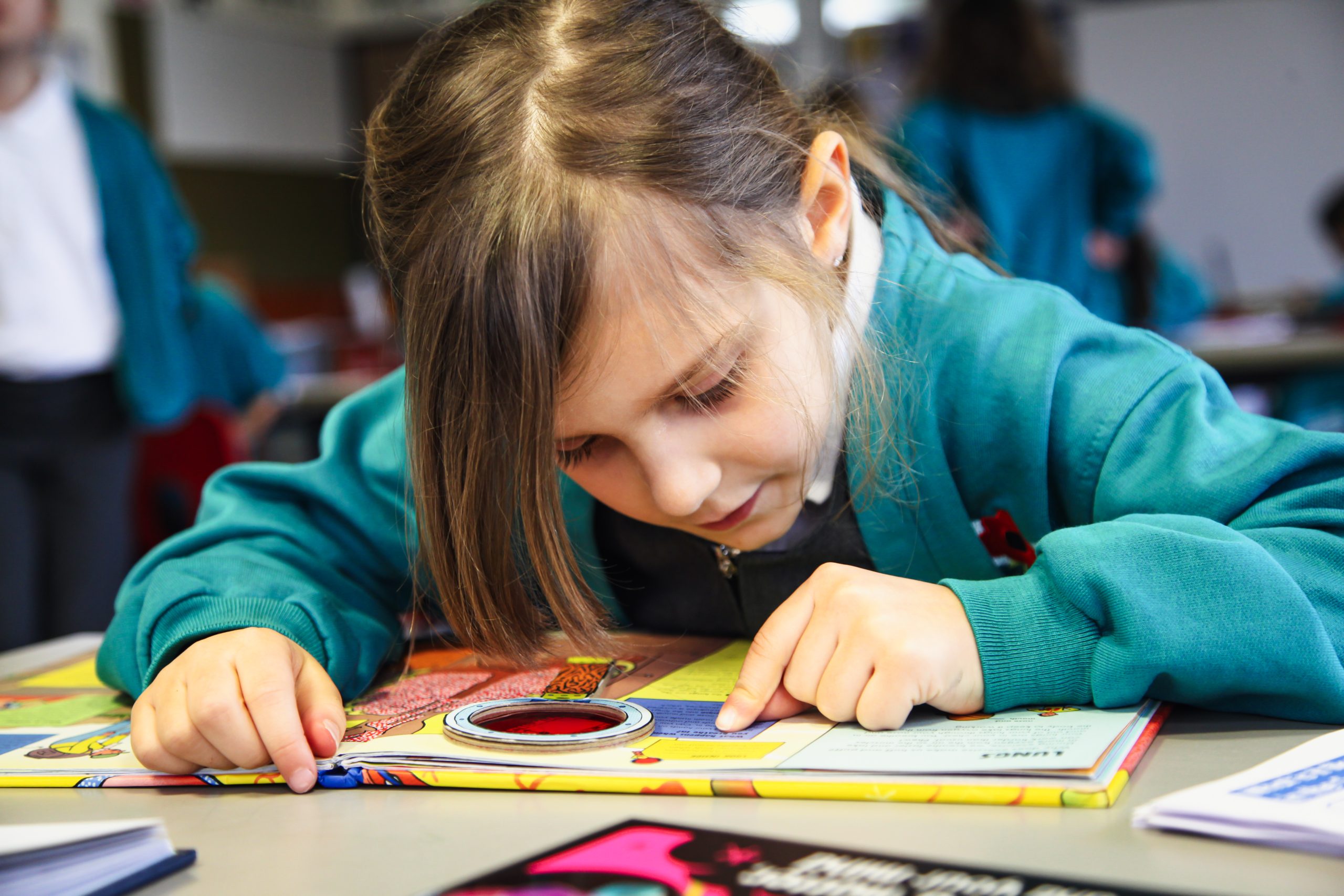Upper Poppleton
York YO26 6JT
Reading
Intent
At Poppleton Ousebank, we help children become articulate and imaginative communicators, well-equipped with the basic skills of reading from phonics to fluency, comprehension to developing a love of language. We want our children to read words and comprehend knowing that the sooner they can read well and frequently, the sooner they will be able to increase their vocabulary, comprehension and their knowledge across all areas of the curriculum.
We aim to give all children the tools and skills to read starting with engaging in storytime, listening to stories, asking questions to check their understanding and getting them to enjoy books and love language. We ensure children experience a broad reading curriculum which embraces a wide variety of quality texts, which enable children to see beyond what they already know. We encourage children to explore the awe and wonder that stories can create and the information and interest that can be gained from non-fiction and develop a lifelong love of reading.
Reading at Poppleton Ousebank Primary
- Daily Read Write Inc Phonics sessions from Reception to Year 2.
- KS2 have daily 30 minute reading lessons:
– Reading Plus for fluency development
– Comprehension skills taught following our sequenced reading spine.
– Disciplinary reading for knowledge. - Daily storytime sessions
– Early Years and KS1: Talk through Stories
– KS2 whole class novel from our reading spine - Reading is embedded across the curriculum and is embedded in all foundation subjects.
Whole Class Reading
Once pupils have graduated from RWInc, they join whole class reading lessons. Texts are carefully chosen to ensure they pose an appropriate level of challenge and interest. This might be a chapter of their whole class novel, a non-fiction text or a poem. Our reading lessons are designed to ensure pupils spend time exploring a text as a whole class, with the teacher modelling expert thinking and reading aloud, pausing to clarify and question in order to guide and monitor comprehension. Pupils have the opportunity to independently read within the lesson in order to develop their fluency. We continue to ensure fluency is developed through frequent choral reading and echo reading. These lessons are driven by discussion based on a Big Question, to guide and develop the pupils’ understanding of the plot, setting and characters as they progress through a story. Pupils also have the opportunity to think and reflect through writing, with I Do, We Do, You Do used to explicitly model and support pupils.
Vocabulary
When planning, teachers identify key Tier 2 vocabulary that may obstruct comprehension. This vocabulary is then explicitly taught before pupils encounter it in the text. Pupils are supported to understand further unfamiliar vocabulary through the use of images.
Reading Plus
We use Reading Plus to accelerate pupils’ reading fluency through weekly class reading sessions. The programme enables pupils to read at an appropriate level whilst monitoring reading speed and comprehension. The programme is adaptive to pupils’ needs, and adjusts the challenge provided as and when necessary. It also develops pupils’ vocabulary through weekly vocabulary sessions. Reading Plus provides live assessment data which allows staff to be responsive to pupil needs in their whole class reading lessons.
Reading for pleasure
Reading for Pleasure remains a whole school priority. Reading enjoyment has been reported as more important for children’s educational success than their family’s socio-economic status (OECD, 2002). Our Reading for Pleasure culture is ‘lived’ by all members of staff as well as being embedded into the school structures and routines. It is everyone’s responsibility to promote and maintain enjoyment of reading.
Whole school story time takes place from 3:00 – 3:15pm every day. During this time teachers read to the children. When reading aloud, we do not stop unnecessarily to ask clarification/comprehension questions. Instead, we allow the story to weave its own magic, only pausing occasionally where necessary to define any important vocabulary. In Key Stage 1 teachers may read to children at other points during the day.
We encourage reading at home and support parents to understand how to read to/with their children. Teachers promote reading for pleasure through making recommendations. Scrap Books allow children to share their favourite books and include both fiction and non-fiction recommendations. Book corners are well used, with a mixture of decodable books (linked to their phonics) and also high quality texts that children are able to borrow and share with their family. All children have access to the class library and to the local library.
Links:
- Our Reading Offer
- National Curriculum Reading Progression
- Recommended reads – EYFS
- Recommended reads – Year 1
- Poppleton Reading List – Year 2
- Poppleton Reading List – Year 3
- Poppleton Reading List – Year 4
- Poppleton Reading List – Year 5
- Poppleton Reading List – Year 6
Supporting reading websites
As parents, it’s often difficult to know which books your child may be interested in or who the current leading children’s authors are. For this reason, we have included some websites below, but you can also visit year group pages on this website to see the suggested reading lists for pupils.


